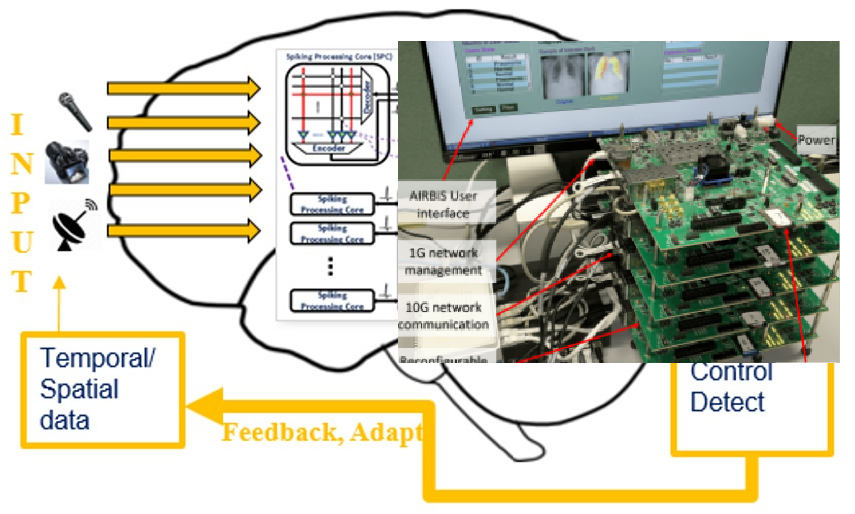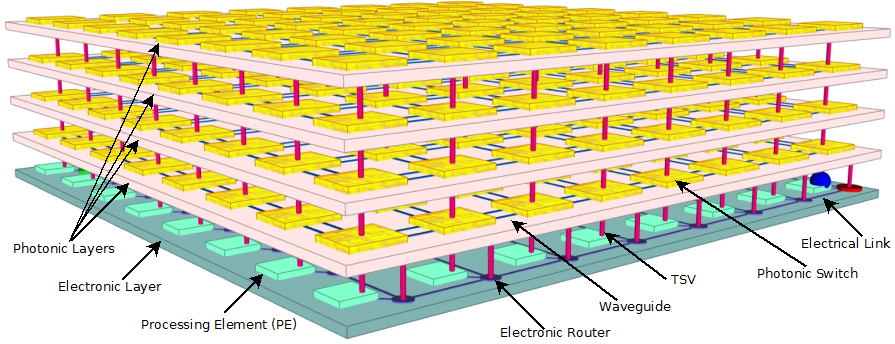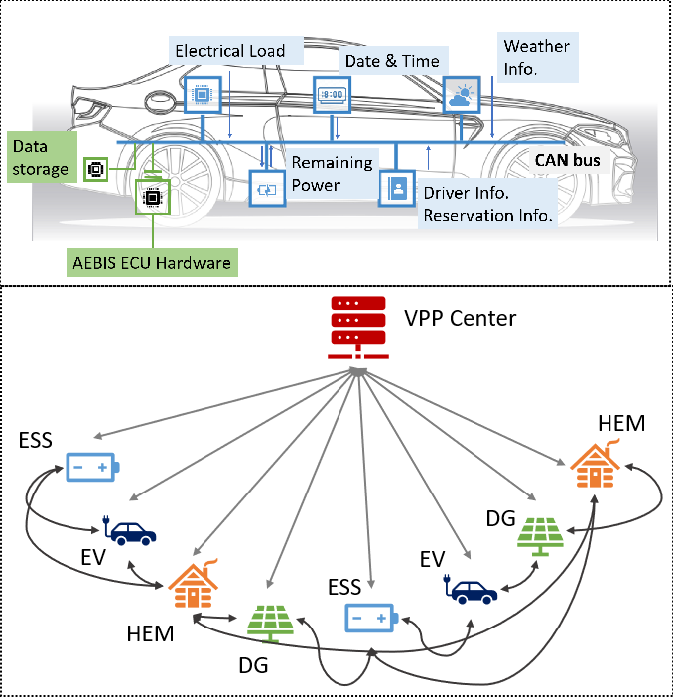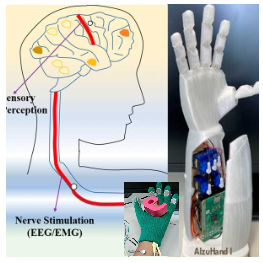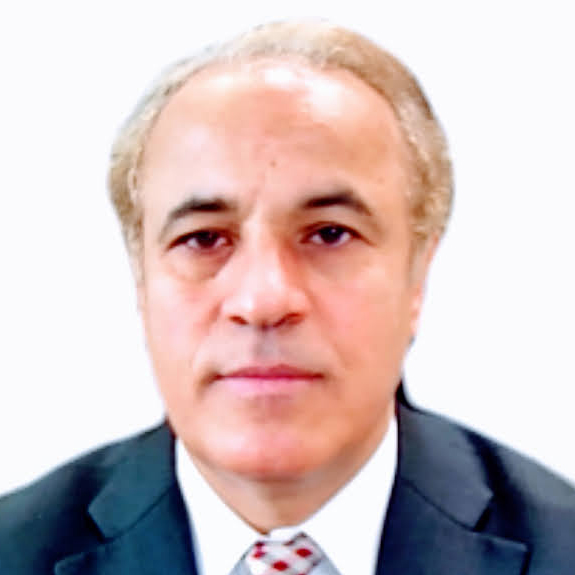
BEN ABDALLAH Abderazek
Professor, Regent (Dean of the Undergraduate School),Dean of School of Computer Science and Engineering,Director of Computer Science and Engineering
- Affiliation
- Department of Computer Science and Engineering/Division of Computer Engineering
- Title
- Professor, Regent (Dean of the Undergraduate School),Dean of School of Computer Science and Engineering,Director of Computer Science and Engineering
- benab@u-aizu.ac.jp
Education
- Courses - Undergraduate
- - Computer Architecture, Undergraduate level, The University of Aizu (UoA), 2018 – present
- Introduction to Computer Systems, Undergraduate level,The University of Aizu (UoA), 2018 – present
- Parallel Computer Systems, Undergraduate level, The University of Aizu (UoA), 2018 – present
- SCCP-001 – Student Cooperative Class Project (System-on-Chip Design), The University of Aizu (UoA), 2009-2010
- Computer System Engineering, The University of Aizu (UoA, 2008-2018
- Embedded Systems, The University of Aizu (UoA), 2008-2016
- Logic Circuit Design Exercises, The University of Aizu (UoA), 2008-2018
- Computer Architecture Exercises,The University of Aizu (UoA), 2008-2018
- Courses - Graduate
- - Neuromorphic Computing, The University of Aizu (UoA), 2023 – present
- Embedded Real-Time Systems, The University of Aizu (UoA), 2008 – 2022
- Multicore Computing, The University of Aizu (UoA), 2010-2015
- Advanced Computer Organization, UoA, 2008 – 2023
- Network-on-Chip, Hong Kong University of Science and Technology (KUST), Hong Kong, China, 2010, 2011, 2012, 2013 (Invited intensive lectures)
Research
- Specialization
-
Computer system
High performance computing
Intelligent robotics
- Educational Background, Biography
-
2022.4 -present Regent, The University of Aizu
2022.4 -present Dean, School of Computer Scinece and Engineering,The University of Aizu
2014.4- present Member, Education and Research Council, The University of Aizu
2014.4-2022.03 Head, Computer Engineering Division, The University of Aizu
2014.4-present Professor, The University of Aizu
2012.4-2014.3 Senior Associate Professor, The University of Aizu
2011.4-2012.3 Associate Professor, The University of Aizu
2007.10-2011.3 Assistant Professor, The University of Aizu
2007.4-2007.9 Assistant Professor, National University of Electro-communications, Tokyo
2002.4-2007.3 Research Associate, National University of Electro-communications, Tokyo
Invited Lecturer:
2022 - present Lecturer, Graduate School of Science and Technology, Kyoto Institute of Technology
2011-2015 Visiting Professor, School of Software Engineering, Huazhong University of Science and Technology
2010-2013 Visiting Professor, Department of Computer Science and Engineering, Hong Kong University of Science and Technology
Education:
1999.4-2002.3 Ph.D. (Computer Engineering), National University of Electro-communications at Tokyo
1994.9-1997.6 M.S. (Computer Engineering), Huazhong University of Science and Technology
19988.9-1994.6 B.S.(Electrical Engineering), Sfax University & Huazhong University of Science and Technology
- Current Research Theme
- Research and Development of Methods for Adaptive Real-time Neuromorphic Prostheses and anthropomorphic Systems/Robotics
- Key Topic
- 3D-ICs; Fault-toleranmce; Network-on-Chip; Computer Systems; Multicore SoCs; Neuromorphic Computing; Anthropomorphic Robotics
- Affiliated Academic Society
- IEEE Senior Member; ACM Senior Member; Member of IEEE Circuits and Systems; Member of IEEE computer society Technical committee on computer architecture; Member of the European Alliance for Innovation; member of IEICE (2007-2019)
Others
- Hobbies
- Reading and visiting historical places
- School days' Dream
- To become a school teacher!
- Motto
- Simple is the best!
- Favorite Books
- " You Can Heal Your Life "
- Messages for Students
- Concentration and organization are the keys to your research success.
Main research
- 3D Spiking Neuromorphic Processor
-
Neuromorphic computing uses Spiking Neuron Network models to solve machine learning problems in a more power/energy-efficient way when compared to the conventional Artificial Neural Networks.
This project aims to research and develop an adaptive low-power spiking neural network system in hardware (NASH) empowered with our earlier developed fault-tolerant three-dimensional on-chip interconnect technology. The NASH system features the following: (1) An efficient adaptive configuration method to enable the reconfiguration of different SNN parameters (spike weights, routing, hidden layers, topology, etc.), (2) A mixture of different deep NN topologies, (3) An efficient fault-tolerant multicast spike routing algorithm, (4) An efficient on-chip learning mechanism.
To demonstrate the performance of the NASH system, an FPGA implementation shall be developed, and a VLSI implementation shall also be established.
- Advanced Interconnect Technologies for Network-on-Chips (2D, 3D, Si-Photonics, Hybrid)
-
Complex SoCs contain dozens of components made of processor cores, DSPs, memory, accelerators, and I/O, all integrated into a single die area of just a few square millimeters. Such complex systems will be interconnected via a complex on-chip interconnect closer to a sophisticated network than current bus-based solutions. This network must provide high throughput and low latency while keeping area and power consumption low. Our research effort is about solving several design challenges to enable such new paradigm in massively parallel many-core systems. In particular, we are investigating fault-tolerance, 3D-TSV integration, photonic communication, low-power mapping techniques, and low-latency adaptive routing.
- AI-enabled Distributed Energy Harvesting
-
In this project, we collaborate with Aizu Computer Science Laboratories, Inc. and Banpu Japan to develop an AI-enabled, blockchain-based electric vehicle integration system for power management in a smart grid platform based on EV and solar carport. We have developed a low-power AI-chip and various software tools for EV charge prediction, in which the EV fleet is employed as a consumer and as a supplier of electrical energy.
- AIzuHand: Adaptive Real-time Non-invasive Neuromorphic Neuroprosthesis Hand
-
Restoring grasping and movement for people with amputations and neurological impairment is imperative for retrieving independence. Prosthetic limbs, which are becoming widespread therapeutic solutions can significantly restore grasping and improve the quality of life of people with amputations or neurological disabilities. However, unlike living agents that combine different sensory inputs to perform a complex task accurately, most prostheses use uni-sensory input, offer limited degrees of freedom and need long patient training.
We investigate adaptive prosthetic limbs to restore grasping and sensation for persons with amputation and neurological impairments. In particular, we develop non-invasive technologies directly interfacing the environment with the residual arm or legs.
Dissertation and Published Works
For the publication list, please see the Laboratory website.



